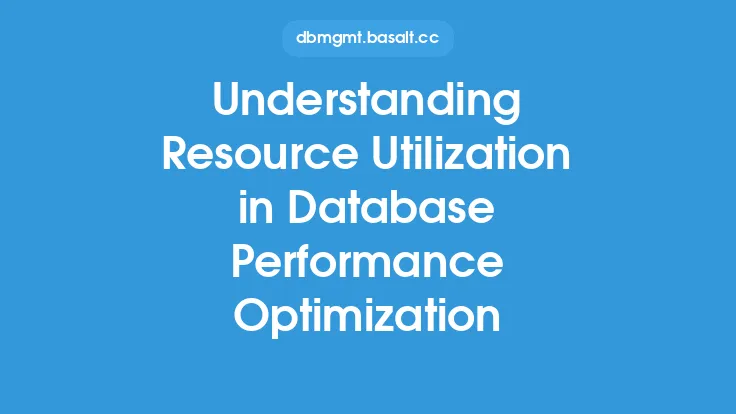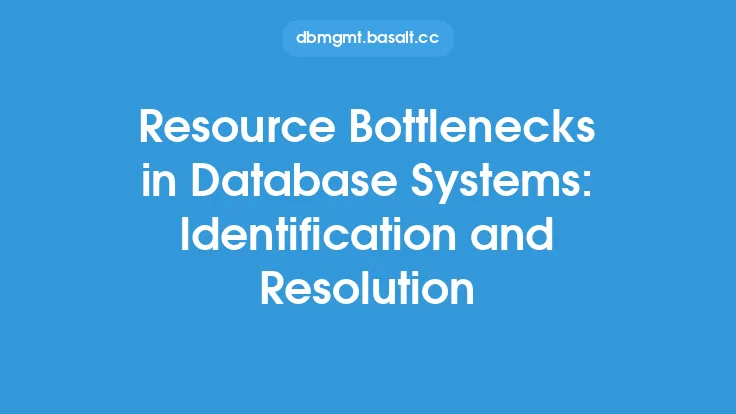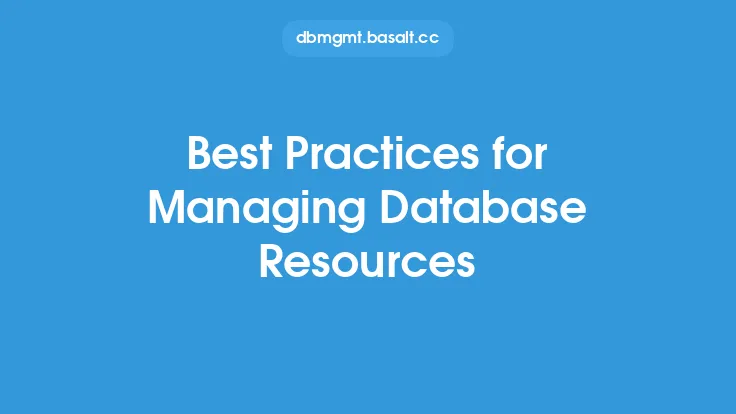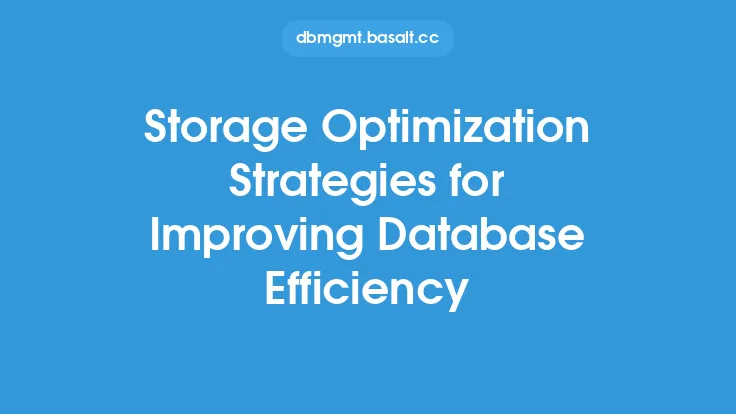Database systems are a crucial component of modern computing, providing the backbone for a wide range of applications and services. However, these systems can be resource-intensive, consuming significant amounts of CPU, memory, storage, and network bandwidth. As a result, reducing resource waste in database systems is essential to improve performance, reduce costs, and minimize environmental impact. In this article, we will explore strategies for reducing resource waste in database systems, focusing on evergreen information that remains relevant and informative.
Introduction to Resource Waste in Database Systems
Resource waste in database systems can occur due to various reasons, including inefficient query execution, poor indexing, inadequate database design, and insufficient maintenance. This waste can lead to increased resource utilization, resulting in higher costs, reduced performance, and decreased scalability. To mitigate these issues, it is essential to understand the sources of resource waste and implement strategies to reduce them. One of the primary sources of resource waste is inefficient query execution, which can be addressed by optimizing queries, indexing, and database design.
Query Optimization Techniques
Query optimization is a critical strategy for reducing resource waste in database systems. This involves analyzing and rewriting queries to reduce the amount of resources required for execution. Several techniques can be employed, including:
- Query rewriting: Rewriting queries to reduce the number of joins, subqueries, and other resource-intensive operations.
- Indexing: Creating indexes on columns used in WHERE, JOIN, and ORDER BY clauses to improve query performance.
- Caching: Implementing caching mechanisms to store frequently accessed data, reducing the need for repeated queries.
- Partitioning: Dividing large tables into smaller, more manageable partitions to improve query performance and reduce resource utilization.
By implementing these techniques, database administrators can significantly reduce resource waste and improve query performance.
Database Design and Configuration
Database design and configuration play a crucial role in reducing resource waste. A well-designed database can minimize resource utilization, while a poorly designed database can lead to significant waste. Several strategies can be employed, including:
- Normalization: Normalizing database tables to reduce data redundancy and improve data integrity.
- Denormalization: Denormalizing database tables to improve query performance, but at the cost of increased data redundancy.
- Data typing: Using appropriate data types to store data, reducing storage requirements and improving query performance.
- Configuration tuning: Tuning database configuration parameters, such as buffer pool size and log file size, to optimize performance and reduce resource utilization.
By applying these strategies, database administrators can create efficient database designs that minimize resource waste.
Storage and Memory Management
Storage and memory management are critical components of reducing resource waste in database systems. Several strategies can be employed, including:
- Storage optimization: Optimizing storage usage by compressing data, removing unused data, and using efficient storage formats.
- Memory allocation: Allocating memory efficiently, using techniques such as memory pooling and caching to reduce memory waste.
- Cache management: Managing cache effectively, using techniques such as cache invalidation and cache sizing to optimize performance.
- Disk management: Managing disk usage effectively, using techniques such as disk striping and disk mirroring to improve performance and reduce resource utilization.
By implementing these strategies, database administrators can reduce storage and memory waste, improving overall system performance and reducing costs.
Monitoring and Maintenance
Monitoring and maintenance are essential components of reducing resource waste in database systems. Several strategies can be employed, including:
- Performance monitoring: Monitoring system performance, using tools such as performance counters and logging to identify areas of resource waste.
- Resource utilization monitoring: Monitoring resource utilization, using tools such as resource monitors and alerts to identify areas of waste.
- Maintenance scheduling: Scheduling maintenance tasks, such as backups and index rebuilding, to minimize resource utilization and reduce waste.
- Upgrade and patch management: Upgrading and patching database software regularly, to ensure that the latest performance and security enhancements are applied.
By implementing these strategies, database administrators can identify and address areas of resource waste, improving overall system performance and reducing costs.
Conclusion
Reducing resource waste in database systems is essential to improve performance, reduce costs, and minimize environmental impact. By implementing strategies such as query optimization, database design and configuration, storage and memory management, and monitoring and maintenance, database administrators can minimize resource waste and improve overall system efficiency. By focusing on evergreen information and staying informed about the latest developments in database performance optimization, database administrators can ensure that their systems are running at optimal levels, reducing resource waste and improving overall performance.





